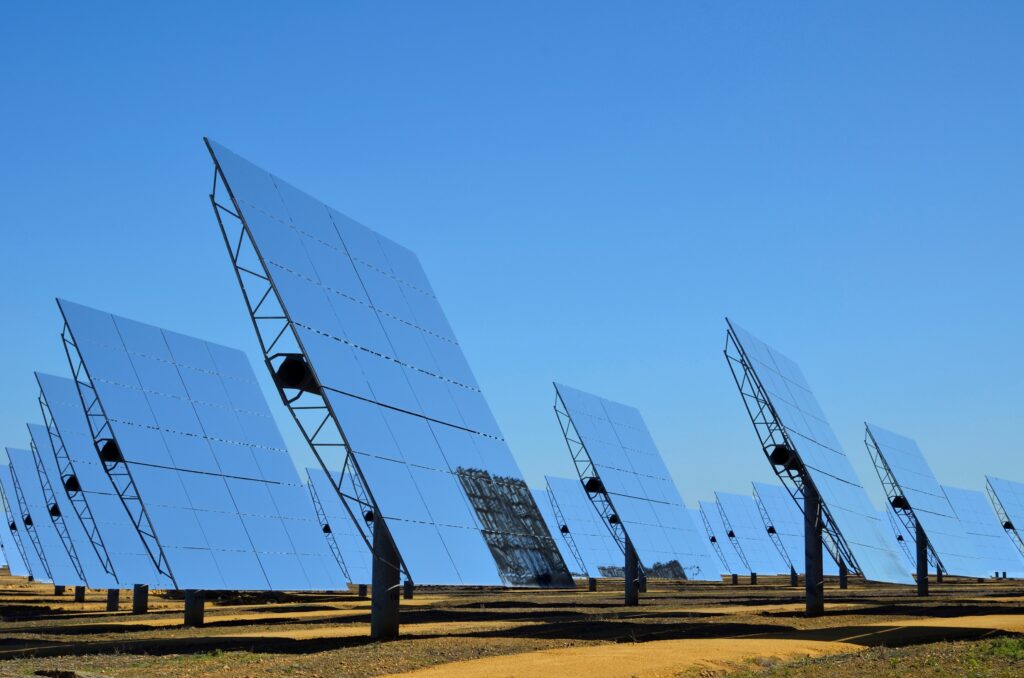What is Korea’s Future and Survival Strategy in the Era of Climate Crisis?

JongHo Hong, Professor of Economics, Seoul National University’s Graduate School of Environmental Studies
[YoungLimWon CEO Forum]
[ITBiz Reporter SiHyeon Park] “Climate change is the greatest risk factor humanity faces in the 21st century. The climate directly impacts the economy. While South Korea sympathizes with the climate issue, there is no consensus on a specific response strategy or direction.”
Professor JongHo Hong of Seoul National University’s Graduate School of Environmental Studies delivered a lecture on “Climate Crisis and Innovation Strategies for Korean Companies in the Carbon Neutral Era” at the 190th YoungLimWon CEO Forum on January 4th. Professor Hong stated, “Climate change is not just an environmental issue; it is an economic issue. The economic forecast for 2024 is not optimistic, and neither is the climate forecast. While the macroeconomy faces challenges, climate risks are expected to intensify. To create a sustainable future for Korea, the immense threat of the climate crisis must be addressed. Despite value conflicts over climate change and energy transition, moving towards renewable energy and normalizing electricity tariffs is undoubtedly the direction we must take.”
The following is the content of the lecture:
◆Climate Crisis as an Economic Issue, Not Just Environmental = Looking at the global GDP changes over the last 2000 years, the real growth rate was zero until 1800. In the 200 years since then, the global GDP has increased about 100-fold. This remarkable growth of the world economy coincides with the increased use of fossil fuels like coal, oil, and gas. Fossil fuels were the backbone of this impressive growth, and with the addition of electricity, the quality of human life has improved significantly.
This was all well and good until about 70 years ago when the carbon emissions from fossil fuel usage started raising alarms. For the last 50 years, there has been a debate over why the Earth is warming and what causes it. Today, over 99% of scientists worldwide agree that the warming of the Earth is due to the fossil fuels used by humans. It’s a result of human economic activities based on fossil fuels. To address this issue, we must change our fossil fuel-based economic activities.
Temperature measurements of the Earth started in 1880, and the current temperature of the Earth has risen by 1 degree compared to the industrial revolution period. To put it simply, this is like the difference between a hot and cold bath in a sauna. If it rises by 1.5 degrees, catastrophic climate damage is expected. At this rate, we have about 7 years left until we reach a 1.5-degree increase. China is currently the largest emitter of greenhouse gases, the main culprit of global warming. Asia, including China and India, is leading global climate change. However, Asia claims that the responsibility lies with the United States and Europe. Looking at the cumulative carbon emissions, the U.S. is the overwhelming leader, emitting more than the 27 countries of Europe combined. The four main sectors emitting carbon are electricity, industry, transportation, and buildings. Korea has a high proportion in electricity and industry, while the U.S. is most significant in transportation. America is a unique country where life without a car is nearly impossible. As of 2021, Korea ranks 7th in the world for carbon dioxide emissions, accounting for 1.65% of global emissions. The climate crisis is an economic issue, not just an environmental one. Failure to proactively address it will lead to disaster. Korea’s global companies are experiencing the severity of climate change firsthand, yet they are not discussing it openly.
◆The Cheapest Technology to Solve Climate Change is ‘Reducing Fossil Fuels’ = Is our future rosy or grim? Economist Thomas Malthus was pessimistic in his predictions, stating in his 1798 publication “An Essay on the Principle of Population” that the exponentially increasing population would lead to food problems, advising poor families not to have children. On the other hand, Keynes was an optimist. Keynes, a controversial economist of the 20th century, predicted that absolute poverty would disappear in 100 years, and most economic problems would be solved through continuous capital accumulation and technological progress. Both were wrong. The food problem was solved through the Green Revolution, and currently, 1 billion people, one-eighth of humanity, live in poverty without access to electricity. Predicting the future should neither be too pessimistic nor too optimistic. We need to look around coolly and develop policies that we won’t regret in the future.
Optimistic economists regarding climate change claim that revolutionary technology will come out and solve the issue instantly. However, such claims are problematic as they may solve climate change but disrupt the ecosystem. The cheapest technology to solve climate change is reducing fossil fuels. Ulsan has been the cradle of Korea’s heavy chemical industry since the 1960s. In the process, the Taehwa River running through Ulsan turned into a river of death. However, after a decade of restoration, it has become the pride of Ulsan and Korea’s second national garden.
The last 60 years of Korea’s environmental chronology can be divided into three eras: the ‘Black Smoke Era,’ the ‘White Smoke Era,’ and the ‘Smoke-Free Era.’ In 1962, the Industrial Tower in Sinjeong-dong, Ulsan, had an inscription that read, “…On the day when the booming sound of the second industrial revolution shakes the East Sea and the black smoke of industrial production stretches into the atmosphere, it is evident that the nation and ethnic group’s hope and development have arrived…” From 1962 to 1991, during this ‘Black Smoke Era,’ Korea recorded an average economic growth rate of 9.2%.
In the 1990s, Korea entered the ‘White Smoke Era.’ During this roughly 20-year period, Korea experienced the phenol pollution of the Nakdong River, conflicts in promoting national projects, and the implementation of a garbage volume-rate system. Subsequently, Korea entered the ‘Smoke-Free Era,’ the ‘Era of Climate Change,’ facing new challenges such as RE100, ESG, CBAM, a circular economy, zero waste, and carbon neutrality. These changes were not due to Korea’s choice but due to global pressure. The economic perspective has completely changed from the past. The problem is that Korea has not been able to adapt to these changes. There is sympathy for the problem, but there is no consensus on the solution.
In the 1950s, Korea’s forests were devastated. However, through a national reforestation project, Korea became the only country to succeed in afforestation after World War II. This shows the strength of Korea. The same is true for Suncheon Bay. It has been designated as Korea’s first national garden for preserving the natural ecosystem. The number of tourists visiting Suncheon increased from 100,000 in 1990 to 13.8 million in 2023.

◆Means of Responding to Climate Change: ‘Mitigation’ and ‘Adaptation’ = In the era of the climate crisis, there are two types of risks: physical risks and transition risks. Physical risks are the costs of physical damage caused by climate change, such as droughts, floods, and wildfires, affecting nations, companies, and individuals. Transition risks are the costs incurred during the transition to a decarbonized economy.
There are two means of responding to climate change. The first is ‘mitigation,’ reducing greenhouse gases that cause climate change. The second is ‘adaptation,’ adjusting to the warmed Earth environment.
Mitigation is directly linked to the transition risks of countries and companies in responding to the climate crisis. The success or failure of a decarbonization strategy will determine the survival and development of the Korean economy. Adaptation is connected to the physical risks caused by climate change. Globally, the astronomical damage to life and property from heatwaves, floods, droughts, and wildfires is increasing. If we cannot proactively and actively address this situation, we cannot guarantee a sustainable future.
Whether it’s mitigation or adaptation, effective policy making requires the help of economics, which studies the efficient and equitable distribution of resources. Therefore, the climate issue is an economic issue and a subject of economic research.
In 2017, a study on ‘Estimating the Economic Costs of Natural Disasters in Korea’ was conducted. Based on the forecasted precipitation until 2060, the study found that a 1% increase in annual rainfall increases economic damage costs by 4.52%. Particularly, the maximum annual damage from natural disasters in Korea by 2060 is estimated to be 23.7 trillion won, accounting for 1.03% of the forecasted domestic GDP. Considering that the damage from Typhoon Rusa in 2002 was around 6 trillion won, huge damages can be expected in the future. The World Bank has said that climate change policies should be handled by the Ministry of Finance, not the Ministry of Environment.
◆ Establishing Decarbonized Trade Norms as the New Normal = In the 2020s, the global economy is poised to embrace a decarbonized trade order as the new standard for international trade. This development will be examined from the perspectives of global companies, the international financial market, and national policies. Three essential concepts to consider are RE100 (100% renewable energy electricity), ESG (Environmental, Social, and Governance), and CBAM (Carbon Border Adjustment Mechanism).
Firstly, RE100 is a global campaign led by international NGOs to address the climate crisis. Major companies worldwide are adopting green transition strategies, committing to using only renewable energy for their electricity needs. Currently, over 390 companies participate. Companies leading RE100 are demanding the use of renewable energy from other companies in their global supply chains. Apple is a prime example, requiring suppliers to use renewable energy. South Korean companies are also facing this pressure. The problem is the target year set for 100% renewable energy use is 2030. If RE100 is deemed impossible in Korea, foreign investments may cease, potentially leading to the collapse of Korea’s industrial ecosystem and resulting in industrial hollowing and job losses.
ESG signifies the importance of financial institutions considering how much companies preserve the environment, fulfill social responsibilities, and strive for transparent governance when making investments.
CBAM is a trade regulation policy that imposes a de facto tax on imports from companies in countries not showing sincere efforts in carbon reduction. This policy represents a significant shift from traditional international trade norms and rules, aiming for a decarbonized new normal.
The U.S. Inflation Reduction Act (IRA) dedicates 84% of its content to investing in energy security and climate change. It is regrettable that a domestic solar energy company in Korea has decided to shut down its local factory and focus on the U.S. market in this context.
Korea is the only OECD country where traditional energies like oil, coal, and gas account for 90% of its energy mix. As of 2021, Korea’s renewable energy generation share is a mere 8.6%, the lowest among the 38 OECD countries, where the average is over 30%. Japan and China are at over 20% and nearly 30%, respectively, highlighting Korea’s position in addressing the climate crisis. Despite this, some media, politicians, and even experts claim that Korea cannot expand renewable energy.
There are misconceptions about renewable energy. Rumors that solar panels are harmful heavy metal masses are entirely false. Solar power plants are made of 95% silicon, a component of sand, and are unrelated to harmful heavy metals. Germany has an industrial ecosystem that collects, transports, recycles, and sells old solar panels.
The belief that Korea’s weather is unsuitable for renewable energy is also a misconception. Germany, with a higher renewable energy share, has lower average annual solar radiation than Korea. Solar facility conditions are much more favorable in Korea. The assumption that renewable energy is too expensive is partly true, as the cost of renewable energy generation in Korea is generally higher than other sources. However, with the recent international energy supply disruptions and the war in Europe, coal and natural gas prices have skyrocketed, making renewable sources like solar and wind more competitive abroad. Reports suggest that by 2030, solar and onshore wind will be the cheapest power sources in Korea.

◆”Korea Must Change Its Distorted Energy Pricing System” = Some argue that Korea’s competitive edge comes from its cheap electricity. Korea has one of the lowest electricity rates among OECD countries. Despite soaring international energy prices and production costs, Korea has frozen its electricity rates, leading to a staggering 30 trillion won loss for Korea Electric Power Corporation in 2022. With the current pricing structure not covering costs, there is little incentive to save energy or improve efficiency. Korea must now correct its distorted energy pricing system. Rational electricity pricing will reduce consumption and carbon emissions.
There is a clash of values over climate change and energy transition. The shift should now be from traditional energy to renewable energy, from supply-centered to digital-based demand management, from low tariffs to normalized pricing, and from centralized to decentralized generation.
◆YoungLimWon CEO Forum
The YoungLimWon CEO Forum, initiated in October 2005, is a monthly breakfast forum discussing management, economy, IT, humanities, and other topics relevant to CEOs of medium-sized and small enterprises, featuring lectures by top experts in these fields.
Source: ITBiz (http://www.it-b.co.kr)






